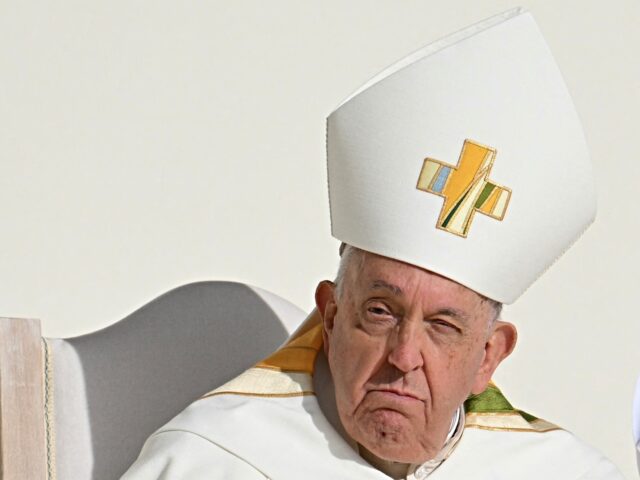ROME — Pope Francis’ popularity among North and South American Catholics continues to drop, the Pew Research Center revealed this past week, and nowhere more so than in his native Argentina.
In the seven countries covered by the survey — Argentina, Brazil, Chile, Colombia, Mexico, Peru, and the United States — the pontiff’s popularity has fallen in all seven.
Back in 2014, the year after his election, Francis enjoyed an impressive 98 percent favorability rating in Argentina, but his popularity has since plummeted by 24 points to a mere 74 percent. Of these, 40 percent see him “very favorably” and the remaining 34 percent see him “somewhat favorably.”
Meanwhile, in neighboring Chile (where Argentineans are not particularly well liked to begin with), Francis began his pontificate with a 79 percent favorability rating, which has since declined to just 64 percent.
In the United States, the pope’s favorability rating dropped by 7 percentage points between 2015 and 2021, from 90 percent to 83 percent, Pew found. More telling still, however, is that in the last 3 years his favorability rating has declined by 8 more percentage points, to a record low of 75 percent.
Practicing Catholics who attend Mass at least once a week are the least supportive of him, giving him a favorability rating of just 71 percent. A mere 26 percent of all Catholics say that they view the pope “very favorably.”
As a point of comparison, the favorability rating for Pope John Paul II never fell below 91 percent during his 27-year pontificate and half of Catholics viewed him “very favorably.”
While the Pew Center does not offer an interpretation of Francis’ fall from favor, the president of the Catholic League for Religious and Civil Right, Dr. Bill Donohue, has suggested that it is not difficult to connect the dots.
Donohue, a sociologist, has noted that in the past three years the pope has endorsed civil unions and allowed the blessing of homosexual couples, leading to unprecedented pushback by clergy from all over the world.
Francis also named Argentinean Cardinal Victor Manuel Fernández as head of the Vatican’s doctrinal office, despite the fact that Fernández is not known as a high-level theologian but whose claim to fame is having published a book on kissing (Heal Me With Your Mouth) as well as another book on the spirituality of orgasms (Mystical Passion: Spirituality and Sensuality), described by many as pornographic.
Donohue observed that Pope Francis “allowed Fr. Marco Rupnik, a fellow Jesuit, to remain a priest in good standing, notwithstanding his being thrown out of the Society for Jesus for sacrilegious and sexual offenses.”
The pope similarly “failed to deal forthrightly with his Jesuit friend, Bishop Gustavo Zanchetta, who was sentenced to prison by an Argentine court for sexually abusing seminarians,” Donohue added.
Along with these disconcerting actions, Francis has put “severe restrictions on the Latin Mass,” Donohue wrote, to the chagrin of numerous faithful Catholics, and has punished conservative prelates such as Bishop Joseph Strickland of Tyler, Texas, and Cardinal Raymond Burke, former head of the Vatican’s highest court.
These and other issues may help explain why the pope’s popularity continues to decline, especially among practicing Catholics, Donohue noted.

COMMENTS
Please let us know if you're having issues with commenting.